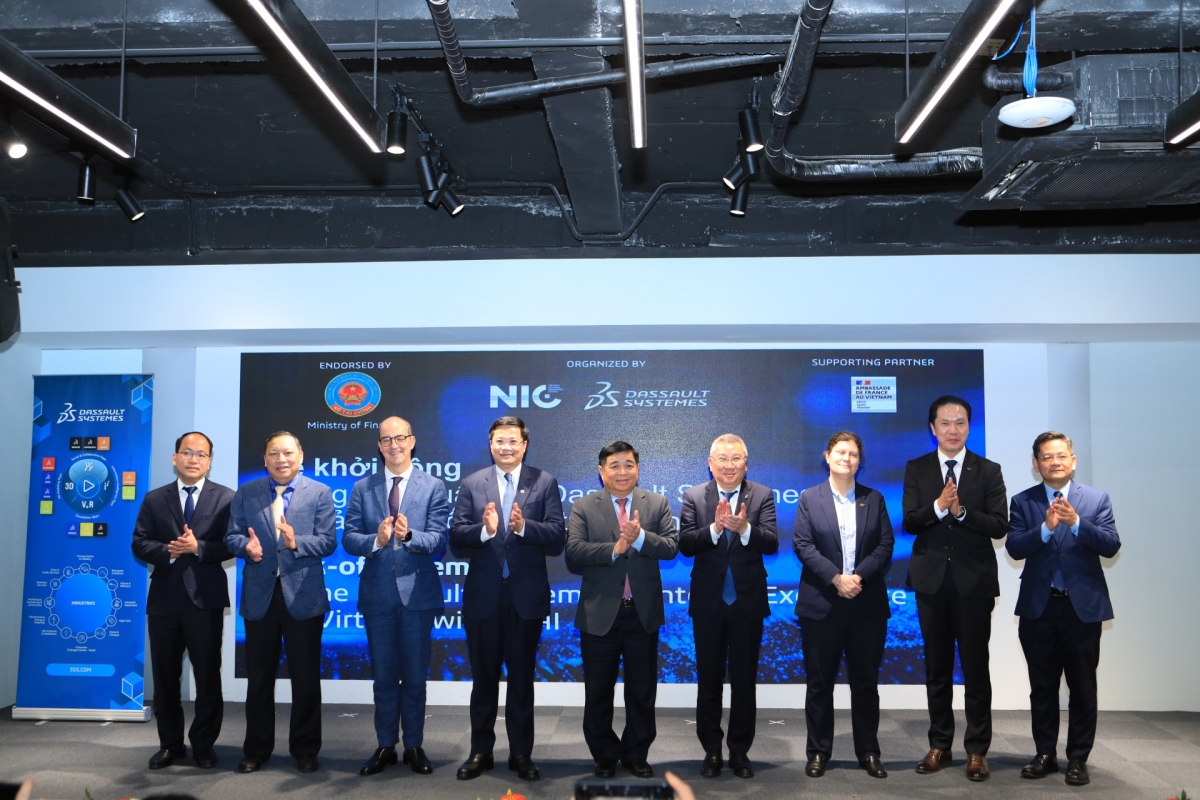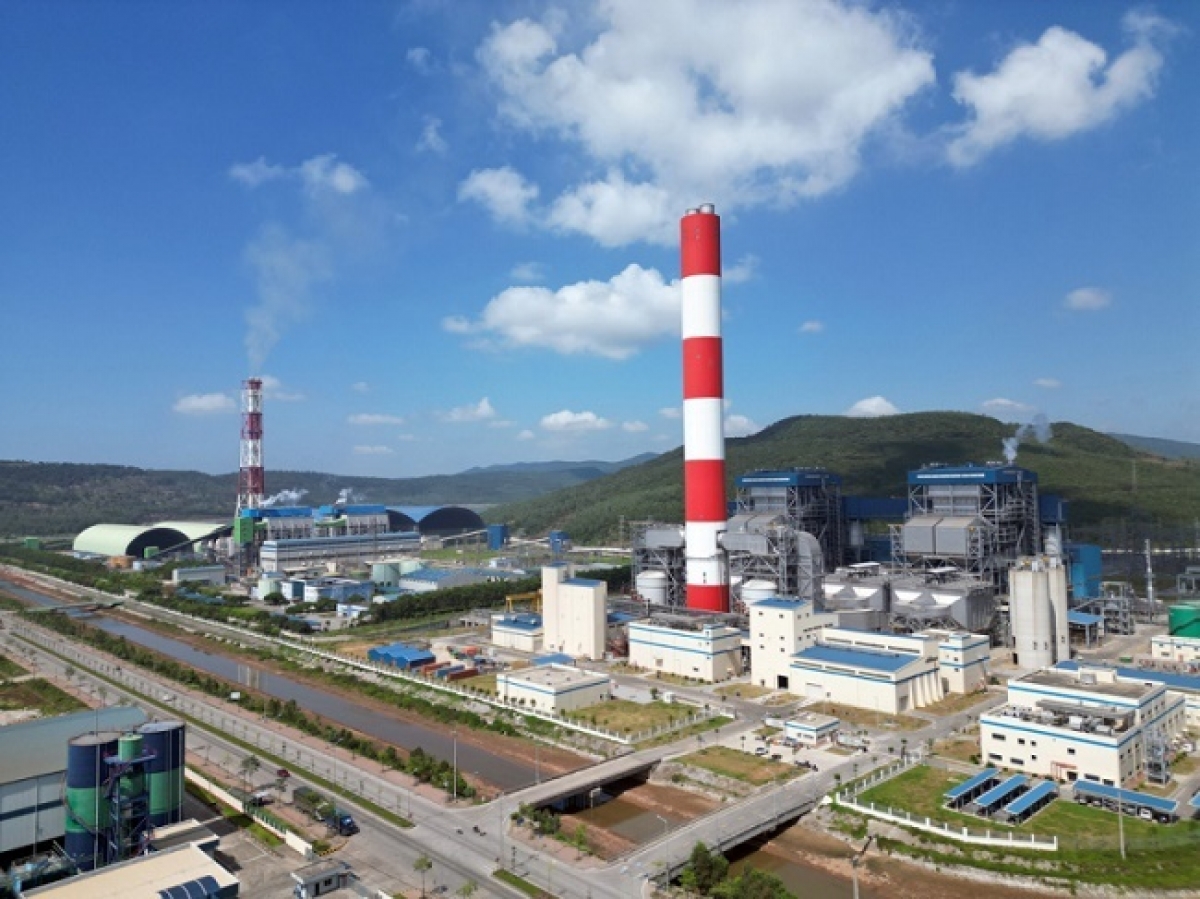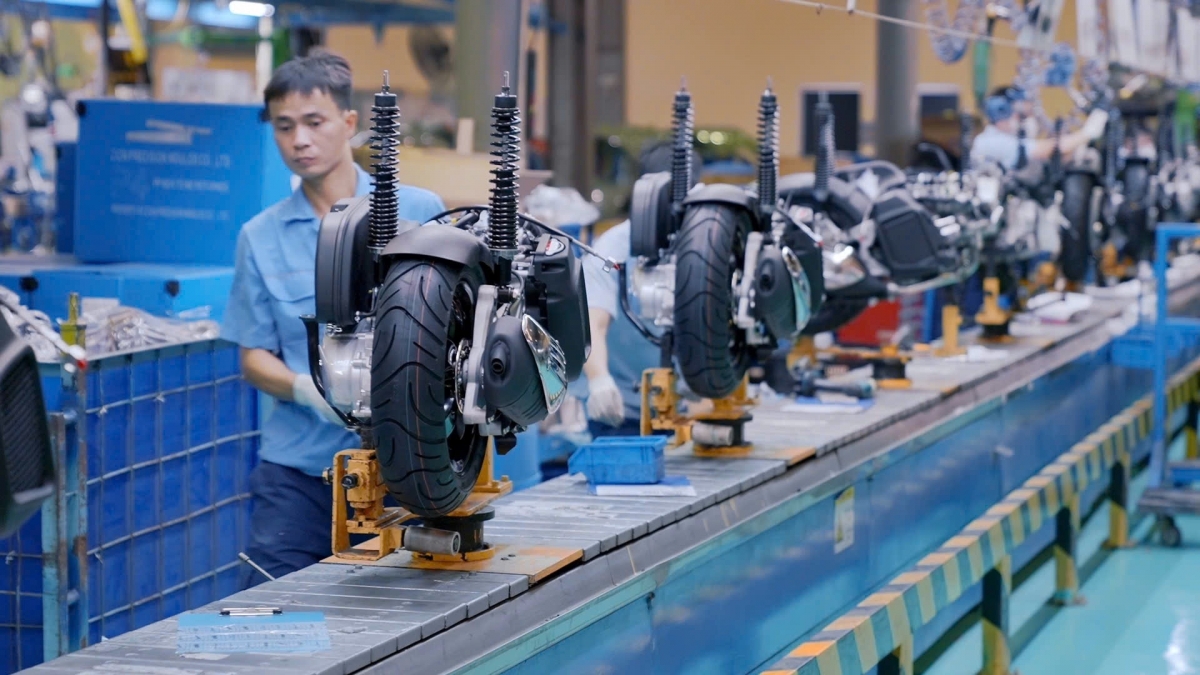INTERNATIONAL INVESTMENT
AND PORTAL
Nguyen Huu Duong, the owner of Dolce by Wyndham Hanoi Golden Lake, a fortnight ago announced his hotel was up for sale with a starting price of $250 million. Duong said there were several interested investors negotiating the price from China, India, and the UAE.
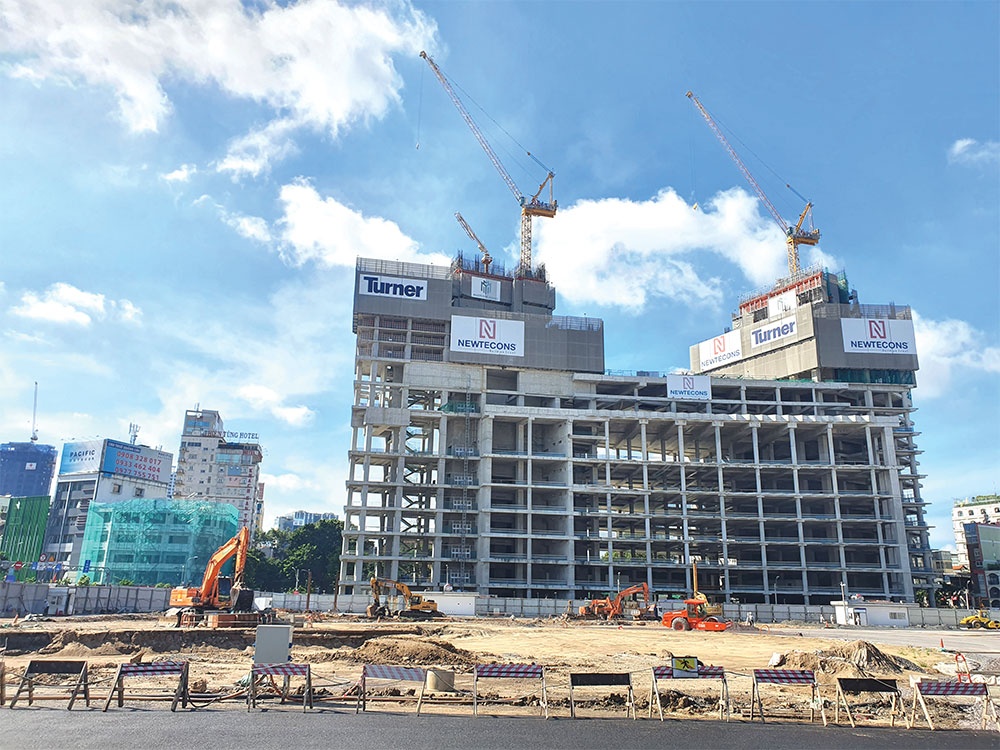 M&A potential could revive choppy property market, photo Le Toan
M&A potential could revive choppy property market, photo Le Toan
Dolce by Wyndham Hanoi Golden Lake was inaugurated in July 2020 and dubbed the first gold-plated hotel in Hanoi, with an investment of $100 million. Almost all the exterior designs and interior furniture of the hotel are covered with 24k gold. The 24-storey hotel has 360 rooms and costs up to $1,000 per night to stay.
Other hotel owners in Vietnam are ready to sell their assets to restructure their business during a turbulent period in the real estate market. Hundreds of hotels are currently offered for sale in Danang, Nha Trang, and Vung Tau in particular, due to deep losses.
In Vietnam, hospitality real estate presents potential as the country is striving to capitalise on the rebound of travel and leisure needs from both domestic and international tourists.
According to Morgan Ulaganathan, head of Asset Services and Hospitality Advisory at Colliers Vietnam, major players in private equity world have been playing a smart game over the last couple of years.
“Though interest rates are rising, it will normalise, and funds have been raising capital to invest in hospitality assets due to the current favourable valuations before hotel revenues meet their full potential,” said Ulaganathan.
Ulaganathan took the example of KKR, which had raised $4.3 billion during the height of the pandemic for these purposes. Bain, another brand, has also been acquiring unbranded and branded hotels individually and on a platform level. Blackstone was quoted that their exposure to the hospitality space is at a ‘historic low’, at around 12 per cent; while Warburg Pincus through its Lodgis platform continues to invest in Vietnam.
“The fundamentals of Vietnam’s hospitality are inherently good, and demand to deploy capital is strong. The clock is ticking and it’s time to start prepping for a dealmaking rush later this year,” added Ulaganathan.
Wave of deals ahead
Meanwhile, Leong Boon Hoe, CEO of Arcadia Consulting Vietnam, said that international business communities were moving their attention to Vietnam.
“It is an excellent time for mergers and acquisitions (M&As), especially for distressed assets in Vietnam. The Vietnam real estate market is in a good transaction time due to many solutions being implemented by the government to drive the market into a more stable and healthy market. It makes the market more transparent and increases our belief in its fortunes,” said Hoe.
Several large-scale deals have been reported already this year.
In early March, Frasers Property Vietnam announced its partnership with local multi-sector investment holding company Gelex Group to grow its industrial portfolio and build its presence across northern Vietnam. The combined investment totals approximately $250 million.
And in January, ESR Group acquired a strategic equity stake in BW Industrial Development JSC. This deal is a part of BW’s larger primary capital raise of up to approximately $450 million.
According to the Ministry of Planning and Investment, as of February 20, the real estate sector placed second among businesses and areas attracting foreign investment with a total investment capital of almost $396.9 million, representing more than 12.8 per cent of the total, three times higher than the same period last year.
Nicholas Michaux, managing partner at Alpha Prime Hong Kong, said that there are pros and cons in the current market. “High interest rates, credit limitation, and an increase in the market values, could lead some to put their investments on hold. Others will see the contraction of the real estate market as an opportunity to access options with more suitable prices. Operators and investors who can use their cash rather than borrowing have here a good entry point to purchase and position themselves in the market,” Michaux said.
According to Peter Chi Lok Woo, chairman of MAA Capital, in 2023, as inflation and interest rates increase, the recession spreading around the world will bring more challenges. However, this also opens up opportunities for M&As, especially in real estate.
“In particular, the scarcity of domestic capital is also a premise for more M&As, promoting the participation of foreign investors who have strong capital and are looking for investment opportunities in Vietnam,” he said.
Woo added that 2023 will witness many changes in the ownership structure of many projects and businesses in the industry. Because capital demand is reaching its limit, sellers will be more determined to sell, and buyers will be more determined to buy.
“The development of the financial market, which requires access to diverse capital sources for real estate, has helped M&As in this sector stay active in recent years. It is easy to see that real estate is in the group of industries with great deal values and receives the attention of domestic and foreign investors.”
Vu Cuong Quyet, general director of Dat Xanh North Real Estate and Services, noted that some foreign investors are waiting for Vietnamese enterprises to reach the brink of bankruptcy to buy real estate.
“The price on the market has dropped 20-50 per cent and more developers are restructuring capital flows and selling off assets,” Quyet said.
Can Van Luc, member of the National Monetary and Financial Policy Advisory Council, recommended businesses continue to be willing to sell assets discounted by up to 30-40 per cent, restructure products and operations, and reduce costs.
“However, it is not easy to sell properties at this stage, even though the price has been negotiated. A successful M&A deal depends on many factors involving buyers, legal procedures, administrative procedures, and more besides,” Luc said.
More to come
According to market researchers, with the current fluctuations in Vietnam, the number of deals from foreign enterprises acquiring Vietnamese projects will increase sharply in 2023.
Most of these deals were negotiated since the disruption caused by the pandemic, as well as reaching a principal agreement in 2022.
“Those transactions came from capital investors who understand the risk and demand fluctuations of the market, aiming to earn a good rate of return or expand the investment portfolio,” said Minh Hoang, a consultant in Ho Chi Minh City.
According to a KPMG report published at the end of 2022, real estate along with a number of prominent industry groups such as consumption, industry, energy, and public utilities continue to lead in attracting foreign direct investment.
This report indicates that the main driving of real estate comes from the continuous increase in demand for office and industrial real estate. The recovery in consumer confidence and spending, fuelled by a large population, a rising middle-class and rapid urbanisation are also strong drivers.
“On the basis that inflation and interest rates will eventually adjust to a reasonable decline, and thus restore investor and consumer confidence, and we expect M&A activity in Vietnam to start recovering from the second half of next year,” the report said.
In its 2023 Global M&A Industry Trends Outlook released in February, Ong Tiong Hooi, partner of Transaction Services at PwC Vietnam, said that the global economy was facing numerous pressures such as inflation and an impending economic downturn, and Vietnam’s M&A market is not out of that general disruption.
“However, Asia-Pacific remains the sweet spot for global growth due to a range of factors – including burgeoning intergenerational wealth transfers, accelerated sector modernisations, growing intra-Asian trade flows, and a nascent focus on environment, social, and governance factors,” Hooi said.
Vietnam is seeing many deal thematics emerge recently, Hooi added, including ‘roll-ups’ in fragmented markets to build scale, strategic divestment from domestic groups as they seek to balance out cash flows, and partial trade-sales and stakes to fund strategic expansions – particularly within Southeast Asia – to manage regional political and supply chain tensions.
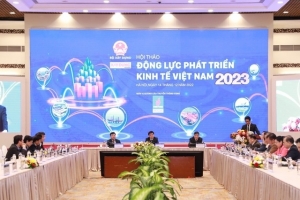 Urban dwellings to become property market core in 2023
Urban dwellings to become property market core in 2023
This was stated by Le Viet Hai, vice president of the Saigon Construction & Building Material Association (SACA), during the Dynamics of Vietnam's Economic Development 2023 seminar held on December 14 in Hanoi.
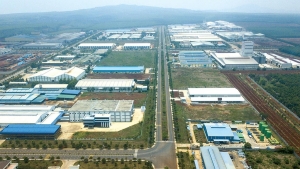 Unveiling bright spots in the property market
Unveiling bright spots in the property market
Capital bottlenecks, liquidity losses, and regulatory limitations make 2023 property market predictions difficult. But there are a number of clear positives.
 Uplifting outlook for 2023 property market
Uplifting outlook for 2023 property market
The property market has shown several favourable signs and is anticipated to become more robust in 2023.
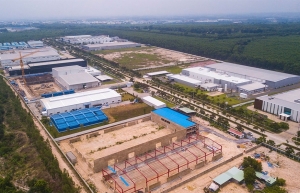 Industrial property taking spotlight
Industrial property taking spotlight
The industrial real estate segment wants to be a bright spot for the country in 2023, and the prospects are there for new funding from neighbouring countries if Vietnam can utilise its advantages to the fullest.
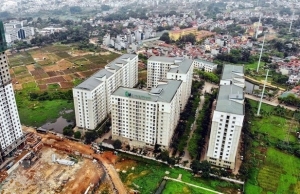 Central bank not tighten real estate credit: Deputy Governor
Central bank not tighten real estate credit: Deputy Governor
The State Bank of Vietnam (SBV) has never issued any documents or statements ordering credit for real estate be tightened, Deputy Governor Dao Minh Tu said on February 8.





